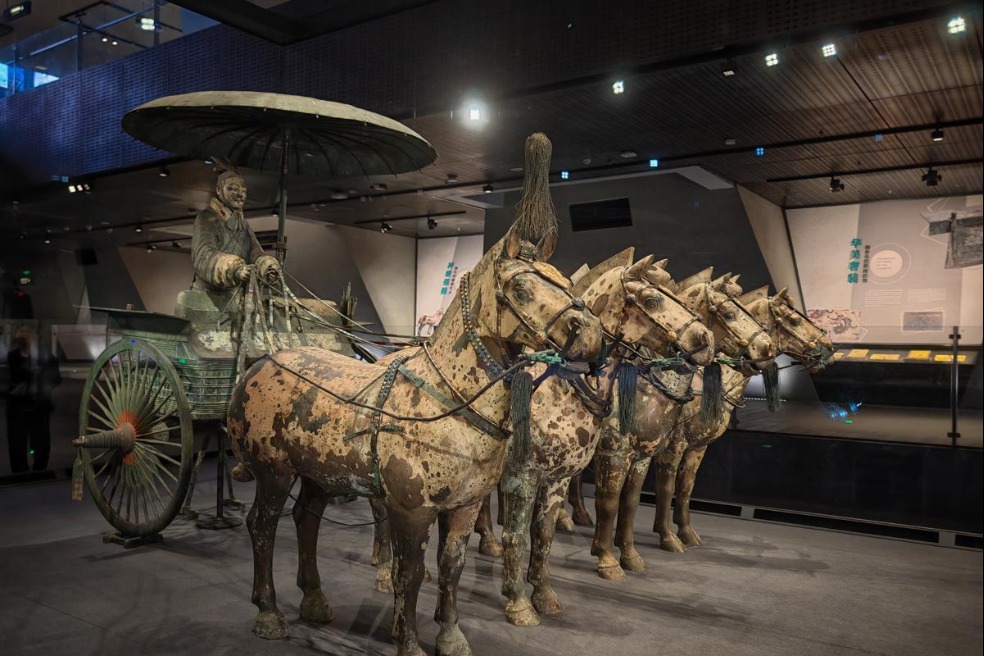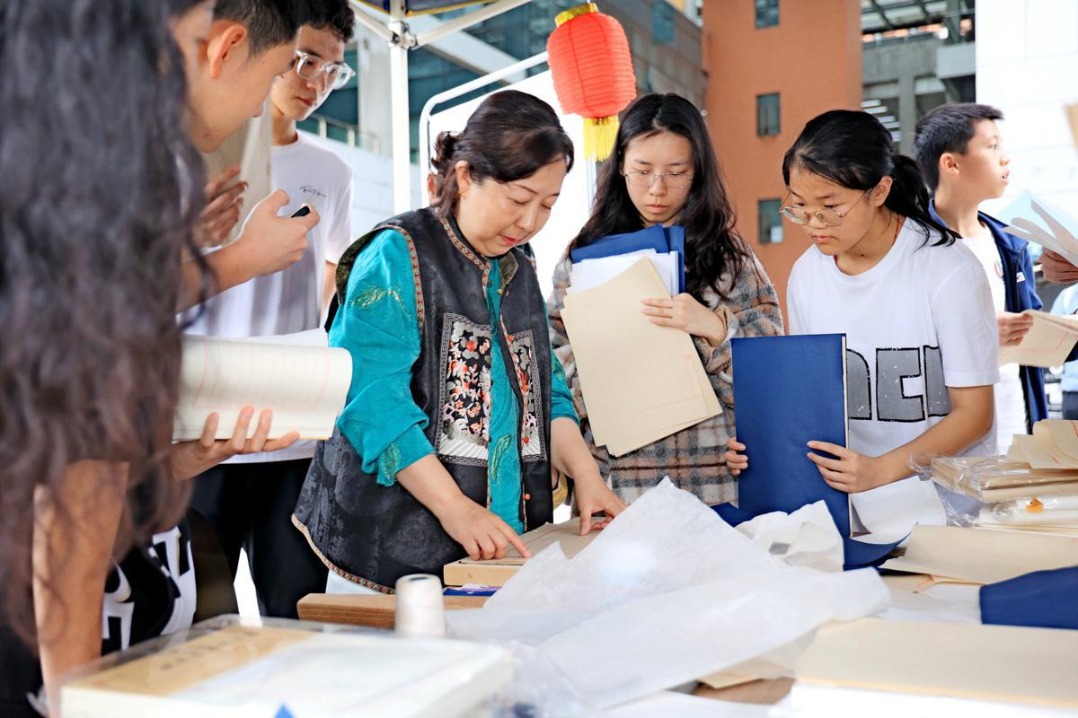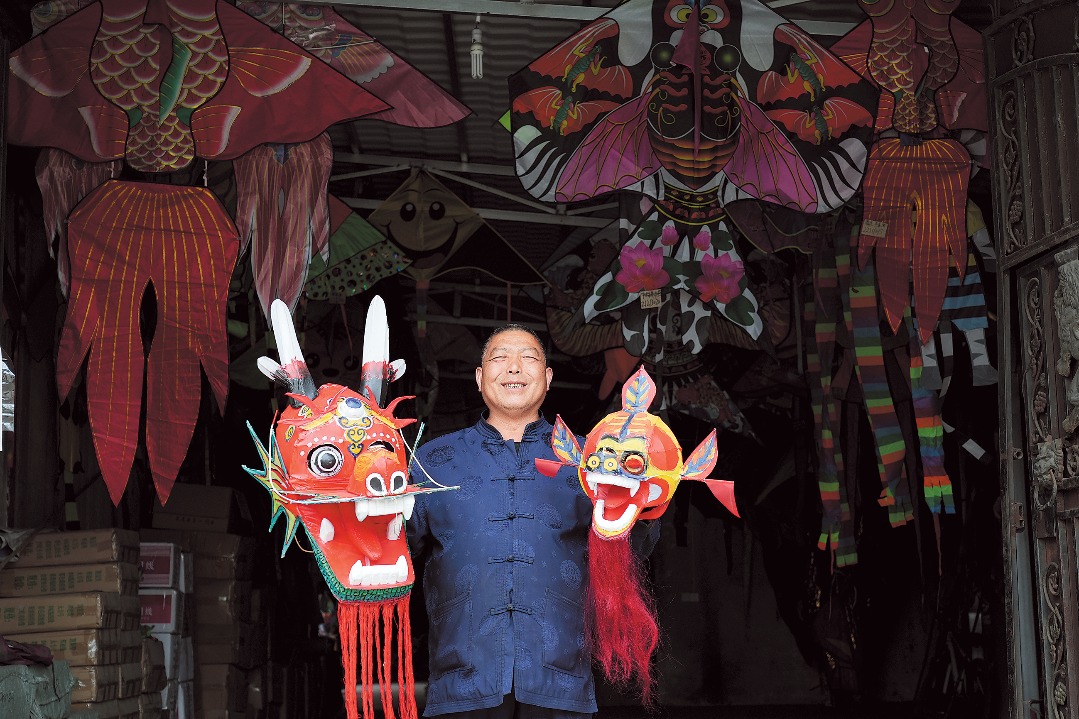Common tongue

It's a sign of the times. Putonghua, or Mandarin, is gaining momentum in Hong Kong schools and among the public and expatriates, as the nation's official language becomes more popular in the SAR and internationally. Oasis Hu reports from Hong Kong.
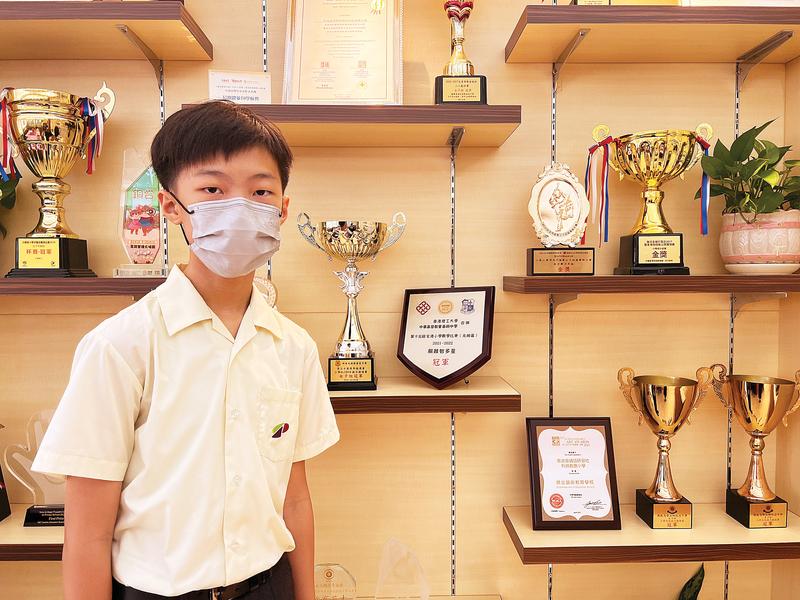
Sung Hei-tung, 12, was puzzled when his parents sent him to the Xianggang Putonghua Yanxishe Primary School of Science and Creativity in Tin Shui Wai.
The school, which focuses on the learning of Putonghua — the national language, commonly known in the West as Mandarin — is the first government-subsidized school in the Hong Kong Special Administrative Region, with its primary medium of instruction different from that of most other schools in the city. The passages in the school's Chinese-subject textbooks are supplemented with pinyin — the official Romanization system for pronouncing standard Putonghua on the Chinese mainland — as phonetics notation. They are twice as long as those in the textbooks of other schools. Most importantly, Sung's peers in other schools are taught in Cantonese (Hong Kong's main dialect) or English, but all of the subjects in his school, except English, are taught in Putonghua, including Chinese, mathematics, music and arts.
Putonghua is omnipresent in Sung's school. The walls are adorned with photographs of students who have won awards in Putonghua competitions. Morning meetings from Monday to Wednesday are conducted in Putonghua. The school devotes a week every semester to organizing various Putonghua activities, such as word puzzles, passage-writing contests and Peking Opera performances.
As economic and social links between the HKSAR and the mainland deepen, Putonghua is gaining ground in the city despite the fact that, by late 2020, there were less than five schools in the city using Putonghua as the primary medium of instruction.
It seems Sung's parents have carved a niche for him in education although they themselves are unable to speak Putonghua well. They are planning for their son's future, believing that Putonghua is essential and will be an international language that will benefit him greatly.
The Sungs' insight has proved prescient. Their son soon found that his friends can't even pronounce words in pinyin, while he can speak Putonghua fluently and read classical Chinese. His friends can write only in Cantonese, but Sung is able to recite passages from prominent Chinese writer Lu Xun too. And the 12-year-old is the only member of his family who can communicate with local people when they visit the mainland because of his fluency in Putonghua. Sung has also set his sights on building up his career in mainland cities in the Guangdong-Hong Kong-Macao Greater Bay Area in the future.
According to Leung Siu-tong, supervisor of the Tin Shui Wai school, more Hong Kong parents now realize the importance of learning Putonghua, hoping their children will pick up the motherland's common language to help them integrate into the nation's overall development. Some parents are practicing speaking the language.
Official data show that the number of Hong Kong residents aged 5 and above who use Putonghua daily has surged by more than 75 percent in the past decade — from 94,399 in 2011 to 165,451 last year. The city is seeing a boom in learning Putonghua. Hong Kong young kids and adults, even expatriates, are caught up in the wave.
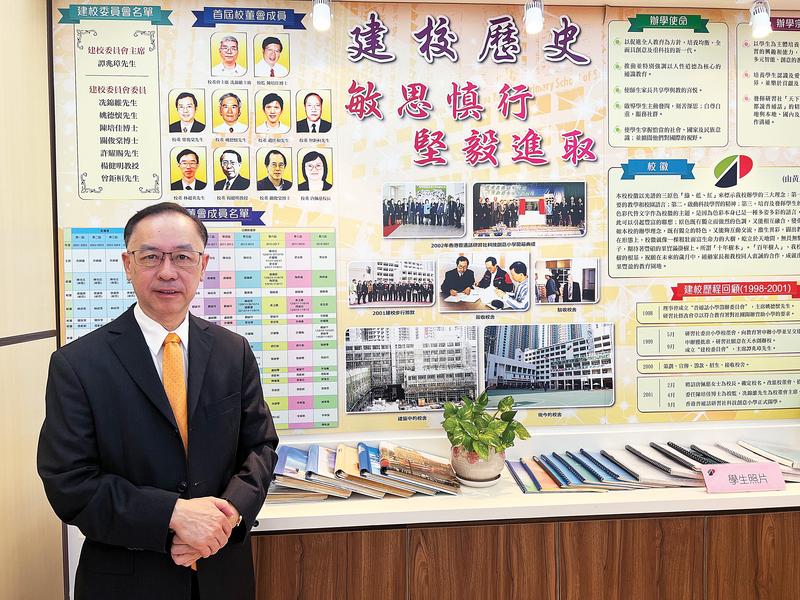
Increasing popularity
"Mandarin business grows with national power," said Joyce Lung, general manager of the Hong Kong Modern Language Centre — a language training school in Central offering lessons in Putonghua, Cantonese and English as its main business.
The center was set up about a decade ago, with the learning of Putonghua rapidly gaining in popularity after China joined the World Trade Organization in 2001 and hosted the Summer Olympic Games in 2008. Its first batch of students came mainly from the financial industry. According to Lung, mainland capital pouring into the SAR then had fueled company acquisitions and mergers, creating abundant jobs for Hong Kong residents. But those who couldn't speak Putonghua were unable to communicate with senior management personnel and therefore were at a disadvantage in terms of promotions and pay raises.
The boom in the financial industry sparked huge demand for Putonghua classes as lawyers and accountants had to deal with mainland businesspeople eager to familiarize themselves with the city's legal and tax systems, said Lung. The situation was the same in the insurance and medical sectors, as many mainland people came to Hong Kong to take out insurance or seek medical treatment in private hospitals, forcing insurance agents and nurses to learn Mandarin.
The social unrest in 2019 briefly disrupted the Putonghua tuition market, but normalcy returned after the SAR government enacted a series of measures to restore stability in the city and implemented the National Security Law for Hong Kong in 2020. The number of Putonghua learners has since been going up again, not only in the financial sector but in all walks of life, including the civil service, the Police Force, doctors, designers and pop stars, as well as local residents who are married to mainland people and also those who intend to work or live on the mainland. Lung's language training center has seen an increase of 40 to 50 percent in the number of students in the past two years.
Ricky Chiu Lam-ho, a 25-year-old pianist, said he has been learning Putonghua since childhood, and his fluent Mandarin has brought him job opportunities on the mainland. Many concerts in Hong Kong have had to be scrapped or put on hold during the COVID-19 pandemic, forcing many artistes out of pocket. Luckily, for Chiu, he has been able to perform on the mainland, using his Putonghua skills to liaise with authorities across the border to get the nod for staging concerts or hiring related personnel.
Hong Kong broadcaster Television Broadcasts said recently it is teaming up with Bauhinia Culture Group to co-produce TV dramas and entertainment shows. Veteran television personality Eric Tsang Chi-wai, who is also general manager of TVB, said both sides will collaborate in training artistes to speak fluent Putonghua and Cantonese to help their programs reach a bigger market.
Flora Ng Leung-wun, vice-principal of Xianggang Putonghua Yanxishe — a nongovernmental group set up in 1976 to promote Putonghua — said it's now clear that all sectors in the community are eager to learn Putonghua, and the "celebrity effect" will drive more Hong Kong residents to learn Mandarin.
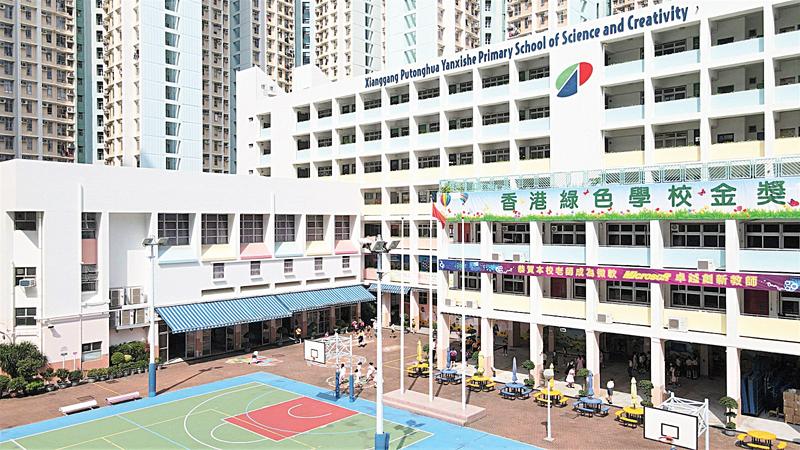
Climbing up the ladder
"There has always been a demand from expatriates to learn Putonghua," said Lung, adding that about 15 percent of the students who take Putonghua classes at her language center are foreigners. The students are in two categories. The first group, aged 30 to 50, and with high income, comes mainly from developed countries like the United States, Germany, Canada, South Korea and Switzerland. They're entrepreneurs with businesses on the mainland, executives working in companies there, or those who are exploring the mainland market.
The other group comprises mostly youngsters, aged 20 to 30. They're students studying in Hong Kong, Chinese who were born in foreign countries but have returned to the SAR to further their careers, or junior employees of global marketing organizations aiming to do business with the mainland.
Australian Cara Chen came to Hong Kong in 2012 when she was 23. It got her closer to her family as her parents are originally from Hong Kong. But more importantly, as a fresh university graduate, she thought Hong Kong — a world-renowned cosmopolitan city — would be the place to see her through in her career.
She took the plunge in the financial world and soon realized that having to handle Chinese clients from time to time isn't an option but a must, and being fluent in Putonghua would help her build relationships with her clients. Chen managed to pick up some Mandarin from her parents during her childhood, but feels she still comes up short.
To strengthen her language foundation, Chen enrolled at Lung's language center three years ago. Despite her busy schedule, she tries her best to attend at least one class every two weeks. She also practices speaking Putonghua by communicating with her colleagues and friends in her spare time. Reading printed Chinese materials daily, such as menus and office documents, also helps her a lot.
"Regardless of individual differences and beliefs, language and communication help to connect us as humans. I believe the better we are able to communicate with each other, the better we are able to connect — something that is becoming increasingly important in today's world," said Chen, stressing that Putonghua is and will be a major tool for linking up with the world.
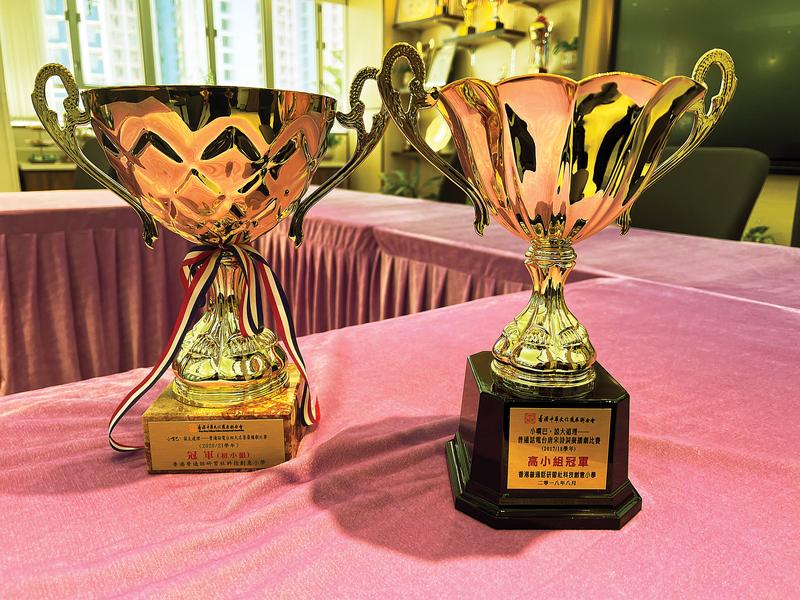
Seizing more opportunities
"If possible, all Hong Kong schools should consider using Putonghua in teaching Chinese subjects in the future, and Hong Kong students should seize the opportunities arising from the development of the country and the Greater Bay Area," Education Secretary Christine Choi Yuk-lin said.
The Education Bureau said in a reply to China Daily that the HKSAR is part of the nation, and local students must learn and speak
Putonghua well as it can help them communicate with their 1.4 billion compatriots, understand each other, and pursue their careers on the mainland.
"Schools can use Putonghua in teaching Chinese-language subjects to various degrees if conditions allow. Generally, the Education Bureau will continue to review the policy and support needed by schools to improve Hong Kong students' Putonghua ability," a bureau spokesperson said.
Leung — the supervisor of Xianggang Putonghua Yanxishe Primary School of Science and Creativity — said the trend for Hong Kong schools has been to use Putonghua as the medium of instruction.
Cantonese and English have traditionally been the primary mediums of instruction in local primary and secondary schools. To promote the use of Mandarin, the Standing Committee on Language Education and Research — a public advisory body to advise the government on language education issues, as well as the use of the Language Fund — launched a program to support primary and secondary schools using Putonghua to teach Chinese-language subjects from 2008.
The program ended in 2014, but the committee continued to promote Putonghua over the next few years. For the 2019-20 to 2020-21 school years, it allocated HK$10 million ($1.3 million) to promote Putonghua in schools, benefiting about 100,000 students. Up to last year, almost 50 percent of primary and secondary schools in the SAR had organized classes in which Putonghua was used to teach Chinese-language subjects.
Xianggang Putonghua Yanxishe went even further. In 2001, with the government's approval and funding, it founded the Tin Shui Wai school as part of its efforts to promote Putonghua. The organization also established a Putonghua tutoring institute in 1987, which, according to its website, has taught more than 400,000 students so far.
At the school, all subjects except English are taught in Putonghua. At present, all of its 62 teachers, except three English-language teachers, have Putonghua certificates. The school's 671 students, including seven from France, Indonesia and Pakistan, receive a Mandarin education.
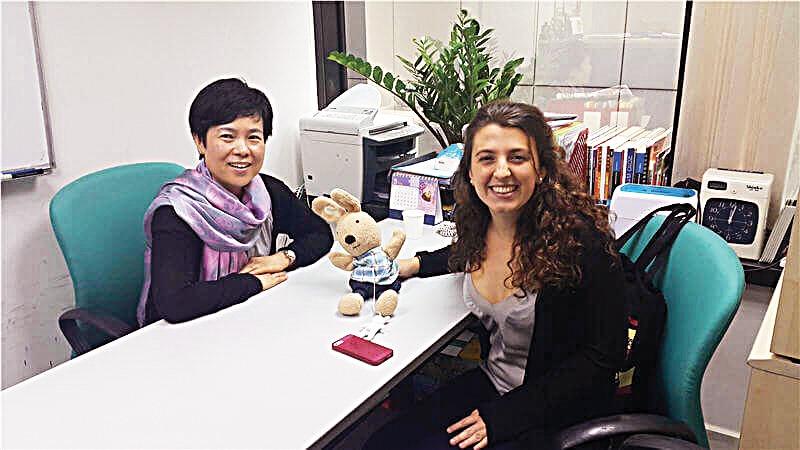
Xianggang Putonghua Yanxishe founded the primary school because it's only natural for Chinese to learn Mandarin, Leung said. Putonghua offers students many advantages. For example, they could integrate listening, speaking, reading and writing when learning Putonghua, which will help them get higher scores in Chinese subjects in the Hong Kong Diploma of Secondary Education examination in the future. Polishing up their Putonghua skills will also enable students to learn more about Chinese culture, enhance their national identity, and help them integrate into the nation's development.
More than 2,000 students who can speak fluent Mandarin have graduated from the school in the past two decades. In 2020, the school interviewed students who had graduated from 2002 to 2014. It found that more than 90 percent of the alumni felt learning Mandarin had helped them a lot in their further studies and entering the workplace.
"Learning Mandarin is becoming an unstoppable trend. Students who can speak Mandarin will have more opportunities and a brighter future," stressed Leung.
Eleven-year-old Lo Wai-sum said she was attracted to the school. She is fond of Chinese subjects and is able to speak fluent Mandarin and recite many classical poems like Min Nong, which teaches people to cherish food and have gratitude for those toiling to produce it.
Lo enjoyed the various Mandarin activities organized by the school — her favorite being the lantern-riddle-solving event for celebrating the Mid-Autumn Festival, which she said could help her to learn more Chinese characters in a fun way.
Lo said Putonghua has helped her communicate with friends better. Her Putonghua skills have played an instrumental role in her decision to seek career opportunities on the mainland when the time comes.
- New draft law requires improvement of energy development
- Chongqing Library expert educates students in book restoration techniques
- Xi Jinping on his love of books
- Experts hail China's progress in immunization
- Ancient bronze chariots and horses unveiled in Xi'an after restoration
- China kicks off National Conference on Reading, stresses cultural confidence
















